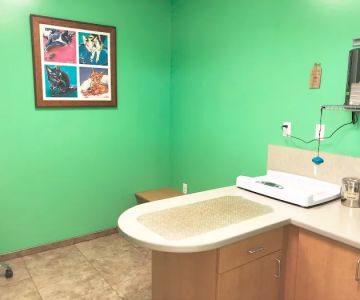How Long Does Veterinarian School Take? A Complete Guide for Aspiring Veterinarians
As a child, I always dreamed of becoming a veterinarian, caring for animals and helping them live healthy lives. However, as I grew older and started researching the profession, one of the first questions that came to mind was: "How long does veterinarian school take?" If you're like me, curious about the path to becoming a veterinarian, this guide will walk you through the educational timeline and what you need to expect along the way.
1. Understanding the Path to Becoming a Veterinarian
Becoming a veterinarian is a long journey that requires extensive education, practical training, and a deep passion for animals. The journey typically begins after completing a four-year undergraduate degree, which is necessary to qualify for veterinary school. After that, veterinary school itself takes an additional four years. So, in total, the process typically takes about 8 years, but this can vary depending on your personal situation and whether you choose to specialize in a particular area of veterinary care.

110 Marketside Avenue #203, Ponte Vedra Beach, FL 32081, USA
See Details2. The Undergraduate Phase: Laying the Groundwork
The first step on your path to becoming a veterinarian is to obtain a bachelor's degree, which usually takes 4 years. While there is no specific "veterinarian" degree, most aspiring vets major in fields like biology, animal science, or chemistry. These degrees provide the foundation of knowledge you'll need to succeed in veterinary school.
In addition to coursework, you'll also want to gain hands-on experience with animals. Volunteering at animal shelters, shadowing veterinarians, or working at farms or zoos can greatly improve your chances of acceptance into veterinary school.
3. Veterinary School: The Heart of Your Education
After completing your undergraduate studies, you'll apply to veterinary schools, which typically offer a 4-year program. Veterinary school is challenging and rigorous, requiring both classroom learning and practical experience in a clinical setting.
The first two years of veterinary school are mostly focused on classroom-based learning. You'll study subjects such as anatomy, pharmacology, pathology, and microbiology. These courses provide the foundational knowledge you'll need to understand how animals' bodies work and how to diagnose and treat their illnesses.
The last two years of veterinary school are more hands-on, as you'll begin to work directly with animals in clinical settings. This phase includes internships, externships, and rotations through different specialties such as surgery, emergency care, or dentistry. The hands-on experience is crucial, as it helps you develop practical skills under the supervision of experienced veterinarians.
4. Specializing in a Field of Veterinary Medicine
While a general veterinary degree prepares you to work with a wide range of animals, you might want to specialize in a particular field, such as dermatology, surgery, or emergency medicine. Specialization requires additional training, which typically involves completing a residency program lasting 3-4 years after veterinary school. This adds a few more years to the total time it takes to become a fully licensed veterinarian with a specialization.
5. Licensing and Certification
Upon graduation from veterinary school, you must pass a licensing exam to practice veterinary medicine. In the United States, this exam is known as the North American Veterinary Licensing Examination (NAVLE). Once you pass this exam and meet any state-specific requirements, you’ll be a licensed veterinarian and can begin your practice.
6. Continuous Education: Learning Throughout Your Career
Even after completing veterinary school and becoming licensed, your education doesn't stop. Veterinarians are required to continue learning throughout their careers, keeping up with the latest research, treatments, and technologies. Many veterinarians participate in continuing education courses or attend conferences to stay updated in their field.
7. The Financial Investment
Becoming a veterinarian is a significant financial investment. Veterinary school tuition can range from $20,000 to over $50,000 per year, depending on whether you attend a public or private school. Additionally, the cost of living and other expenses can add up quickly. However, many veterinarians find that the financial investment is worth it for the ability to work in a fulfilling and rewarding career.
8. Real Stories from Aspiring Veterinarians
For example, I remember speaking to a friend, Sarah, who recently graduated from veterinary school. She explained that the journey was long and tough, but the feeling of becoming a veterinarian made it all worth it. Sarah spent 4 years in undergraduate school, followed by 4 years of veterinary school, and she now works in a small animal clinic specializing in surgery. She shared how her dedication and love for animals drove her to push through the challenges.
Another story comes from Tom, a veterinarian who pursued a specialization in equine medicine. Tom completed the standard 4 years of veterinary school, then decided to pursue a 3-year residency program focusing on large animal care. Now, he's able to work with racehorses and large livestock, and he loves the variety of his day-to-day work.
9. Conclusion: A Rewarding Journey
In conclusion, the journey to becoming a veterinarian takes significant time and dedication, typically 8 years of education after high school, with additional years if you decide to specialize. The reward, however, is a fulfilling career caring for animals and making a positive impact on the world. So, if you are passionate about animal care, don't be discouraged by the time and effort required—it's all worth it in the end.
If you are considering becoming a veterinarian and want to learn more about the educational journey, check out some great resources available online. And if you’re ready to begin your path, don’t hesitate to start researching veterinary schools and begin your studies!










